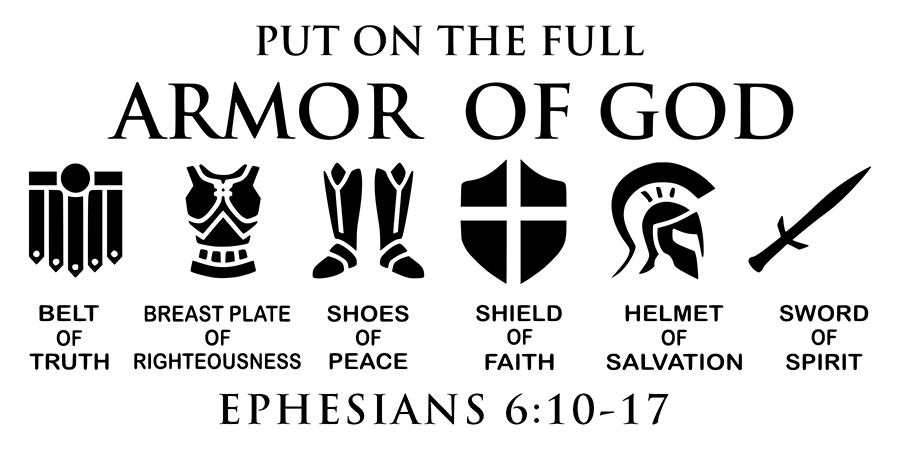You are in Beware the Wolves -> List of False Teachings
Some claim and teach that a Christian no longer commits any sin (ever) after they are born again. This is a false teaching, for the life of a Christian is one of continued repentance. We will still sin while we are short of glory here on earth, even after being born again of the Spirit, for we are still in fleshly bodies in this fallen world. Others misconstrue 1 John 3:9 to mean that a born-again Christian never sins. Wayne Jackson writes on this misconception: [1]
In one of his epistles, the apostle John writes:
“Whosoever is begotten of God does not sin, because his [God’s] seed abides in him: and he cannot [ou dunamai] sin, because he is begotten of God” (1 John 3:9).
The apostle is not suggesting that it is impossible for the child of God to sin (cf. 1 John 1:8-9; 2:1-2); rather, he is stating that when divine truth becomes resident in the heart, one will choose not to yield ourselves to a habitual, unrestrained life of sin. The term “cannot” is used in the sense of a moral imperative.
A Christian’s life is one of continued repentance and continued avoidance of deliberate, willful sin. That we may stumble and fall at times is normal, for we are human; and in that case, the apostle John reassures us that we have a faithful Advocate in Christ:
My little children, I am writing these things to you so that you may not sin. And if anyone sins, we have an Advocate with the Father, Jesus Christ the righteous. – 1 John 2:1
If we say that we have no sin, we are deceiving ourselves and the truth is not in us. If we confess our sins, He is faithful and righteous to forgive us our sins and to cleanse us from all unrighteousness. If we say that we have not sinned, we make Him a liar and His word is not in us. – 1 John 1:8-10
Matthew Henry writes on 1 John 1:8-10: [2]
Here, I. The apostle, having supposed that even those of this heavenly communion have yet their sin, proceeds here to justify that supposition, and this he does by showing the dreadful consequences of denying it, and that in two particulars: – 1. If we say, We have no sin, we deceive ourselves, and the truth is not in us, 1Jn 1:8. We must beware of deceiving ourselves in denying or excusing our sins. The more we see them the more we shall esteem and value the remedy. If we deny them, the truth is not in us, either the truth that is contrary to such denial (we lie in denying our sin), or the truth of religion, is not in us. The Christian religion is the religion of sinners, of such as have sinned, and in whom sin in some measure still dwells. The Christian life is a life of continued repentance, humiliation for and mortification of sin, of continual faith in, thankfulness for, and love to the Redeemer, and hopeful joyful expectation of a day of glorious redemption, in which the believer shall be fully and finally acquitted, and sin abolished for ever. 2. If we say, We have not sinned, we make him a liar, and his word is not in us, 1Jn 1:10. The denial of our sin not only deceives ourselves, but reflects dishonour upon God. It challenges his veracity. He has abundantly testified of, and testified against, the sin of the world. And the Lord said in his heart (determined thus with himself), I will not again curse the ground (as he had then lately done) for man’s sake; for (or, with the learned bishop Patrick, though) the imagination of man’s heart is evil from his youth, Gen 8:21. But God has given his testimony to the continued sin and sinfulness of the world, by providing a sufficient effectual sacrifice for sin, that will be needed in all ages, and to the continued sinfulness of believers themselves by requiring them continually to confess their sins, and apply themselves by faith to the blood of that sacrifice. And therefore, if we say either that we have not sinned or do not yet sin, the word of God is not in us, neither in our minds, as to the acquaintance we should have with it, nor in our hearts, as to the practical influence it should have upon us.
II. The apostle then instructs the believer in the way to the continued pardon of his sin. Here we have, 1. His duty in order thereto: If we confess our sins, 1Jn 1:9. Penitent confession and acknowledgment of sin are the believer’s business, and the means of his deliverance from his guilt. And, 2. His encouragement thereto, and assurance of the happy issue. This is the veracity, righteousness, and clemency of God, to whom he makes such confession: He is faithful and just to forgive us our sins, and to cleanse us from all unrighteousness, 1Jn 1:9. God is faithful to his covenant and word, wherein he has promised forgiveness to penitent believing confessors. He is just to himself and his glory who has provided such a sacrifice, by which his righteousness is declared in the justification of sinners. He is just to his Son who has not only sent him for such service, but promised to him that those who come through him shall be forgiven on his account. By his knowledge (by the believing apprehension of him) shall my righteous servant justify many, Isa 53:11. He is clement and gracious also, and so will forgive, to the contrite confessor, all his sins, cleanse him from the guilt of all unrighteousness, and in due time deliver him from the power and practice of it.
So, if you sinned yesterday, confess it and repent and let His peace guard your heart. Stay focused only on Jesus, each day. Remember we have these powerful verses to help remind us that:
The Lord’s lovingkindnesses indeed never cease,
For His compassions never fail.
They are new every morning;
Great is Your faithfulness.
“The Lord is my portion,” says my soul,
“Therefore I have hope in Him.”
The Lord is good to those who wait for Him,
To the person who seeks Him.
It is good that he waits silently
For the salvation of the Lord. – Lamentations 3:22-26
Wayne Jackson further writes on 1 John 2:1-2: [3]
There are several points in this passage that are worthy of notation. Let us briefly concentrate upon them and the meaning they contain for our lives.
- The phrase “little children” is found nine times in this epistle. It reflects the tender love that the apostle had for his fellow Christians. Would it not be wonderful if more of God’s children would treat one another as “family”? This disposition is possible—even when we disagree. Can we not consider each other as “brothers,” rather than “enemies” (2 Thes 3:15)? This does not mean that we are allowed to ignore error; it does address the attitude we should adopt in dealing with our spiritual kinsmen.
- The text underscores the power of the written word; John hopes that his message will inoculate against sin in his brethren’s lives. There are those who believe that an inward, supernatural operation of the Holy Spirit guards them against wrongdoing. John knows nothing of the “zap” ideology. In fact, if such were the case, one could only conclude that the Holy Spirit is doing a mediocre job—since even Christians cannot live above sin. According to the apostle, the written word is the antidote against evil (Psa. 119:11). And when there is failure, the flaw is with us—not the Spirit of God.
- John acknowledges human weakness; he takes note of the fact that sin will overtake us on occasion (see: 1:8; cf. Rom. 7:15; 1 Cor. 10:12). I shall never forget the conversation that I once had with a Christian brother who, deadly serious, stated that he had finally graduated to the level where he sinned no more! I could only listen in stunned amazement, noting that he had eclipsed even God’s apostle. Perhaps John anticipated such arrogance when he wrote, “If we say that we have [present tense] no sin, we deceive ourselves, and the truth is not in us” (1 Jn. 1:8). When we do yield to sin, if the evil is not remedied in the biblical way, even Christians can be cut off from Heaven’s grace (Gal. 5:4)—contrary to the dogma of Calvin.
- When the child of God does sin, however, he need not feel that his situation is hopeless. If he confesses his wrongdoing (1:9), and attempts to turn from such in repentance (Acts 8:22), his “Advocate” (parakletos – a term meaning, “to call to one’s side”) is available to help him. The idea suggested is a legal one; Jesus is the “counsel for the defense” on our behalf. Based upon his own flawless record (cf. “righteous” v.1b), and his atoning mission (1:7), he is qualified to plead our cause. If we practice “walking in the light” (the grammatical tense implies sustained activity), our case will not be lost!









